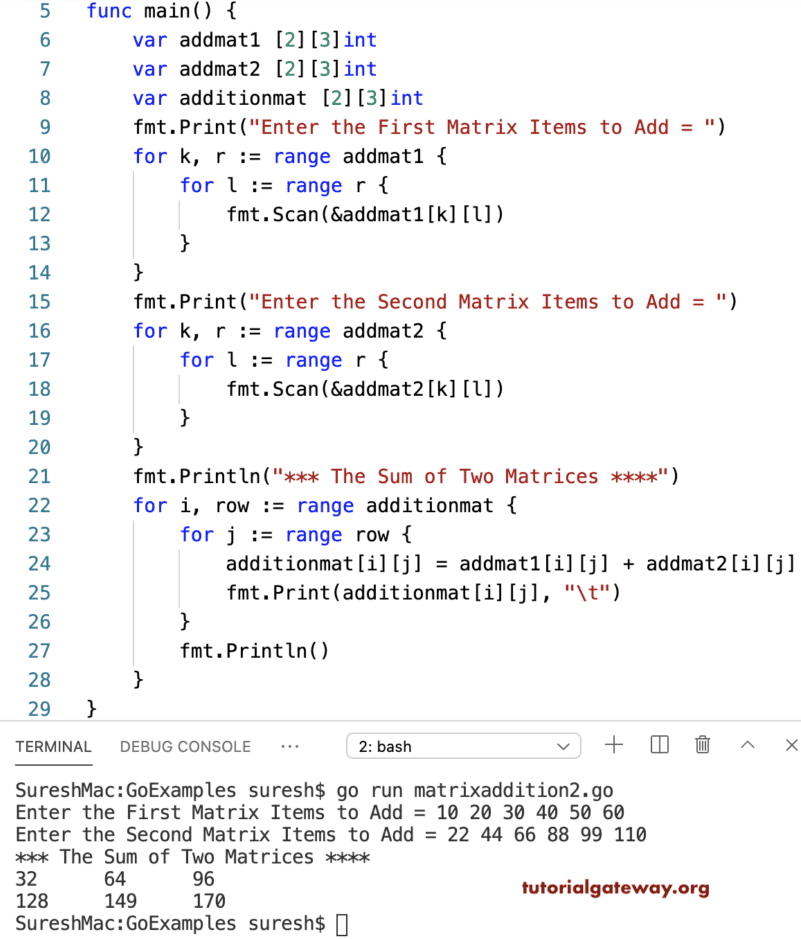在这个 Go 矩阵相加程序中,我们使用了两个嵌套的 for 循环。第一个 for 循环将两个矩阵相加,并将结果赋给相加矩阵。第二个嵌套 for 循环(for i = 0; i < rows; i++ { for j = 0; j < columns; j++)用于打印相加矩阵的元素。
package main
import "fmt"
func main() {
var rows, columns, i, j int
var addmat1 [10][10]int
var addmat2 [10][10]int
var additionmat [10][10]int
fmt.Print("Enter the Addition Matrix Rows and Columns = ")
fmt.Scan(&rows, &columns)
fmt.Print("Enter the First Matrix Items to Add = ")
for i = 0; i < rows; i++ {
for j = 0; j < columns; j++ {
fmt.Scan(&addmat1[i][j])
}
}
fmt.Print("Enter the Second Matrix Items to Add = ")
for i = 0; i < rows; i++ {
for j = 0; j < columns; j++ {
fmt.Scan(&addmat2[i][j])
}
}
for i = 0; i < rows; i++ {
for j = 0; j < columns; j++ {
additionmat[i][j] = addmat1[i][j] + addmat2[i][j]
}
}
fmt.Println("The Sum of Two Matrices = ")
for i = 0; i < rows; i++ {
for j = 0; j < columns; j++ {
fmt.Print(additionmat[i][j], "\t")
}
fmt.Println()
}
}
Enter the Addition Matrix Rows and Columns = 2 2
Enter the First Matrix Items to Add =
10 20
30 40
Enter the Second Matrix Items to Add =
3 9
14 22
The Sum of Two Matrices =
13 29
44 62Golang 矩阵相加程序示例
在这个示例中,我们使用了嵌套的 for 循环范围来为 addmat1 和 addmat2 赋值。接下来,我们使用了另一个嵌套的 for 循环范围来执行矩阵加法并打印结果。
package main
import "fmt"
func main() {
var addmat1 [2][3]int
var addmat2 [2][3]int
var additionmat [2][3]int
fmt.Print("Enter the First Matrix Items to Add = ")
for k, r := range addmat1 {
for l := range r {
fmt.Scan(&addmat1[k][l])
}
}
fmt.Print("Enter the Second Matrix Items to Add = ")
for k, r := range addmat2 {
for l := range r {
fmt.Scan(&addmat2[k][l])
}
}
fmt.Println("*** The Sum of Two Matrices ****")
for i, row := range additionmat {
for j := range row {
additionmat[i][j] = addmat1[i][j] + addmat2[i][j]
fmt.Print(additionmat[i][j], "\t")
}
fmt.Println()
}
}
